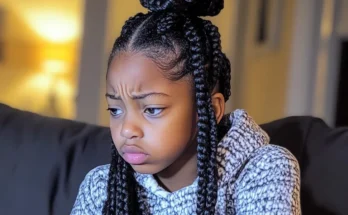Matthew, 38, thought he could hold his blended family together. He had two children, ages 14 and 12, from his late wife, and had remarried Michelle, who had an 18-year-old son named Ethan. For years, Ethan lived with his biological father due to behavioral issues—skipping school, fighting, and disrespecting authority. During holidays, Ethan visited, but even those brief stays were turbulent. He bullied Matthew’s kids, took their belongings without asking, and made cruel remarks about his daughter’s appearance.
Matthew voiced his concerns to Michelle, but she dismissed them. “He’s just acting out. He needs love,” she insisted. Matthew disagreed, but tried to keep the peace.
Then came the breaking point. Michelle’s ex-husband kicked Ethan out after a major fight, and Michelle announced Ethan would be staying with them “just for a few weeks.” Matthew reluctantly agreed, but only with strict boundaries.
The first week was quiet. Then the chaos returned. Ethan blasted music at night, left messes everywhere, and one night, Matthew caught him rummaging through his son’s backpack, pulling out a tablet and other items. Ethan claimed he couldn’t sleep and wanted to play video games. Matthew didn’t believe him.
The next morning, Matthew drew the line. His kids had finally begun healing after their mother’s death—doing better in school and therapy. He refused to let Ethan’s presence unravel that progress. Michelle accused him of “choosing his kids over hers” and stormed out to stay with her sister.
A week later, Matthew reached out, hoping to find a solution. But when he suggested that maybe they shouldn’t stay married if they couldn’t agree on boundaries, Michelle hung up.
Now, Matthew is left questioning everything. He still loves Michelle, but he won’t compromise his children’s safety or emotional stability. “I won’t risk my kids for a teenager who doesn’t want help,” he says.
His story is a raw portrait of the painful choices parents face in blended families—where love, loyalty, and protection collide. It’s not about favoritism. It’s about survival. And sometimes, choosing your children means losing everything else.


